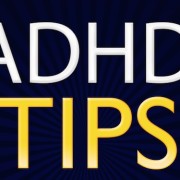How does ADHD Coaching Help?
Create “Good Stress”
People with ADHD often require a feeling of stress in order to achieve goals. This is because the stress and sense of urgency of a deadline forces them to complete tasks. For this reason, ADHD coaching helps clients create their own “good stress.” By creating deadlines, schedules, and check-ins, clients learn to manipulate their stress level in order to finish tasks.
Decrease Negativity
A person with ADHD may feel guilty and ashamed of the difficulty they cause to themselves and others. Many people live with ADHD as their main identity. Coaching helps to rid of this negative identity. Always remember: you are NOT your ADHD.
Stay Motivated
It is a myth that people with ADHD lack motivation. Coaching helps people to realize their motivation and past success. This leads to higher self-confidence and continued success.
Know Yourself and Make Changes
An important factor in coaching is to teach clients to recognize their own behavior. With ADHD, clients must recognize their actions in order to notice when they are getting off track. Self-monitoring also helps to tune out distractions and increase attention.
Among other benefits, ADHD coaching helps to strengthen time management and organizational skills as well as build self-esteem and acceptance.
Contact Dr. Gordon for help with your ADHD. We have treatment and solutions available online, by phone, and in our offices.
written by: Brianna Malinowski, Jay Gordon, Ph.D
Ratey, N. A. (2008). The disorganized mind: Coaching your ADHD brain to take control of your time, tasks, and talents. New York: St. Martin’s Griffin.



